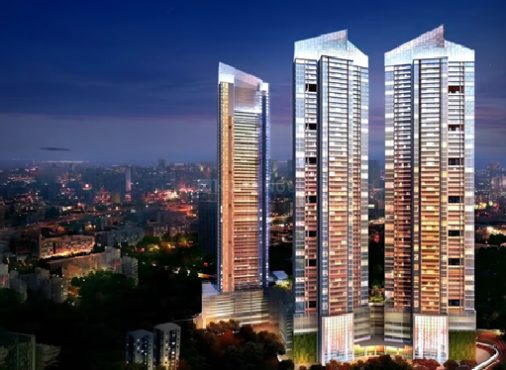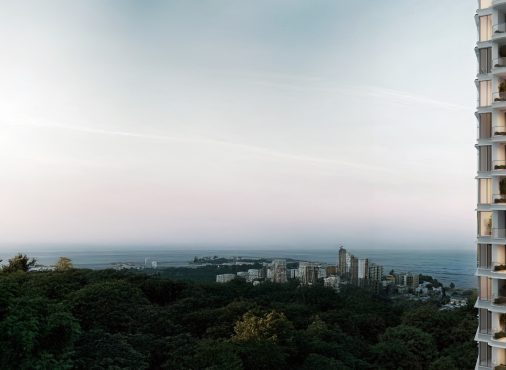Acquiring a luxury property is much more than just an acquisition of real estate – it is an investment in a lifestyle, a defining mark of success, and, in many cases, serves as wealth that can be passed down.
However, the stakes involved in buying and selling luxury properties come with significant risks. In this blog post, we will analyse the scope of luxury real estate legal due diligence and the processes that developers like Rustomjee undertake to streamline luxury property purchases for the clients.
What is Legal Due Diligence in Real Estate?
Legal due diligence in real estate is a discrete referencing term that describes the process of evaluating the property that demands attention before completion.
This process ascertains the identity of the owning parties, their agreements, activities during the delivery period, compliance with relevant laws, status of known legal actions or claims of a property, and other issues that enable a person to obtain the title as deeded.
For buyers of luxury properties such as pools and penthouses for sale, this is not just a matter of obtaining documents; it is more about making sure that there are no risks that are unperceived that impinge on access to possession, financial transactions, or economic value and out value.
Checks to be Conducted
The due diligence process encompasses multiple layers of verification, including:
- Title and Ownership Verification: Ensuring the seller has a clear, marketable title and the right to transfer ownership.
- Encumbrance Checks: Investigating if the property is mortgaged, pledged, or subject to any financial liabilities.
- Zoning and Land Use Compliance: Confirming the property is approved for its intended use (residential, commercial, etc.).
- Regulatory Approvals: Checking sanctions and clearances from authorities like RERA, municipal corporations, and environmental boards.
- Building Code Compliance: Verifying that construction aligns with sanctioned plans and local building regulations.
Read Also: What Makes Chembur a Great Choice for Family Homes?
Why It’s Essential for High-Value Transactions
Luxury properties often involve larger land parcels, premium locations, and complex legal histories. Due diligence is critical because:
- The Stakes are Higher: High-value properties carry greater financial risk if legal complications arise post-purchase.
- Premium Properties Attract More Scrutiny: Government authorities, local municipalities, and even neighbours closely monitor high-end real estate developments.
- Legal Clarity Ensures Long-term Value Appreciation: Clear documentation and approvals boost confidence among future buyers and investors.
- Avoidance of Costly Legal Battles: Due diligence prevents unpleasant surprises like litigation, demolition orders, or financial penalties.
Major Risks Prevented by Legal Due Diligence
Skipping or rushing due diligence can expose buyers to several high-impact risks. A comprehensive legal check acts as a safeguard against these pitfalls.
Litigations and Encumbrances
- Pending Litigations: Legal battles over ownership, boundary disputes, or inheritance claims can delay or invalidate property transactions.
- Encumbrances: These include mortgages, liens, or financial claims by banks and third parties. If not identified, buyers may inherit these liabilities.
- Third-party Claims: Properties under joint ownership, family disputes, or with unresolved legal claims can lead to protracted legal battles, affecting possession and resale potential.
Unauthorised Construction or Zoning Violations
- Deviations from Approved Plans: Any construction beyond sanctioned plans can invite demolition orders or heavy penalties. For instance, in Mumbai, the Brihanmumbai Municipal Corporation (BMC) imposes a 200% penalty on property tax for such violations.
- Zoning Infractions: Using residential land for commercial purposes or violating height and setback norms can attract legal action.
- Environment and Safety Non-Compliance: Lack of environmental clearances or fire safety NOCs can make a property legally unfit for occupation.
Read Also: Spacious Family Homes in Chembur: The Luxury of 3 and 4 BHKs
Key Components of Due Diligence
A thorough legal due diligence process covers several critical areas, each designed to ensure the property is legally sound, compliant, and safe for investment.
Title Verification
- Legal Ownership Check: Confirming the chain of title deeds to ensure a clear and undisputed history of ownership.
- Encumbrance Certificate Review: Issued by the Sub-Registrar, this certificate verifies whether the property has any legal or monetary liabilities.
- Search Reports and Title Opinions: Conducted by real estate lawyers to authenticate ownership and ensure there are no hidden legal challenges.
Developer Approval Checks (RERA, ULC, etc.)
- Registration Verification: Ensuring the project is registered with the Real Estate Regulatory Authority (RERA), guaranteeing transparency and buyer protection.
- Urban Land Ceiling (ULC) Compliance: Verifying the project’s adherence to ULC norms, especially for large land parcels in urban areas.
- Building Plan Sanctions: Reviewing approvals from municipal bodies for layout plans, building height, FSI (Floor Space Index), and occupancy certificates.
- Environmental Clearances: For large-scale developments, necessary approvals like Environmental Clearance (EC), Consent to Establish (CTE), Consent to Operate (CTO), Coastal Regulation Zone (CRZ) Clearance, Forest Clearance, and Wildlife Clearance from respective authorities must be in place.
Land Use Permissions
- Zoning Certificate Verification: Confirming the property’s designated use (residential, commercial, mixed-use) as per local development plans.
- Conversion Orders: For properties that were originally agricultural land, ensuring legal conversion to non-agricultural (NA) use is essential.
- Development Control Regulations (DCR) Compliance: Ensuring adherence to local building regulations, including permissible FSI, building height, and open space requirements.
Documents Reviewed During Due Diligence
A comprehensive legal due diligence process involves meticulous scrutiny of various statutory documents that establish the property’s legality, compliance, and safety for investment.
Sanctioned Plans and Layout
- Approved Building Plans: Verification of the building’s layout as sanctioned by the municipal corporation or urban development authority.
- Floor Plan Approval: Ensuring individual units conform to approved dimensions and specifications.
- Layout Compliance: Confirming the project adheres to Development Control Regulations (DCR), including open spaces, FSI utilisation, and common amenities.
Environmental Clearance
- Environmental Impact Assessment (EIA): For large-scale luxury projects, due diligence verifies the EIA report and clearance from the Ministry of Environment.
- Consent from Pollution Control Boards: Ensures the project complies with environmental norms related to waste management, water usage, and emissions.
- Green Building Certifications (if applicable): Verifying sustainability certifications like IGBC or LEED, which enhance property value and appeal.
NOCs from the Departments
- Fire Safety NOC: Certification from the local fire department confirming compliance with fire safety norms.
- Water and Sewage Connection Approvals: Verification of NOCs from municipal bodies for essential utilities.
- Electricity Supply Approvals: Ensuring legal sanction for power connections and load capacity.
- Other Approvals: Approvals include Elevator Safety Certificates from the Lift Inspectorate and legal clearances like the Occupancy Certificate (OC) and Building Completion Certificate (BCC) from municipal authorities. These ensure safety, regulatory adherence, and eligibility for occupancy.
Conclusion
Legal due diligence serves as a protective shield, ensuring your investment is safeguarded against hidden risks, legal complications, and regulatory non-compliance. By partnering with reputed developers who prioritise transparency and legal clarity, such as Rustomjee, buyers can navigate the complexities of real estate with ease.
From pre-verified documentation to dedicated legal support, Rustomjee ensures that your journey towards luxury home ownership is seamless, trustworthy, and hassle-free. Explore Rustomjee’s residential properties and discover how we can make your dream home a secure reality.
FAQs
- How long does the legal due diligence process typically take for a luxury property purchase?
The duration of legal due diligence can vary depending on the complexity of the property. For a well-documented luxury project by reputed developers like Rustomjee, the process typically takes 2 to 4 weeks.
This timeline includes title verification, regulatory checks, and clearance reviews. For properties with unclear documentation, the process may extend further.
- Can legal due diligence identify issues with inherited or ancestral properties?
Yes, legal due diligence is essential for inherited or ancestral properties, where ownership claims can be contested. The process involves verifying the entire chain of ownership, ensuring there are no pending partition suits, family disputes, or third-party claims.
This is especially important in high-value transactions to avoid post-purchase litigation.
- Does Rustomjee offer assistance with property registration and post-purchase legal formalities?
Absolutely. Rustomjee provides end-to-end support, including assistance with property registration, stamp duty payments, and other post-purchase legal formalities. Our in-house legal coordination ensures a hassle-free experience for both resident and NRI buyers, simplifying the entire ownership transfer process.








